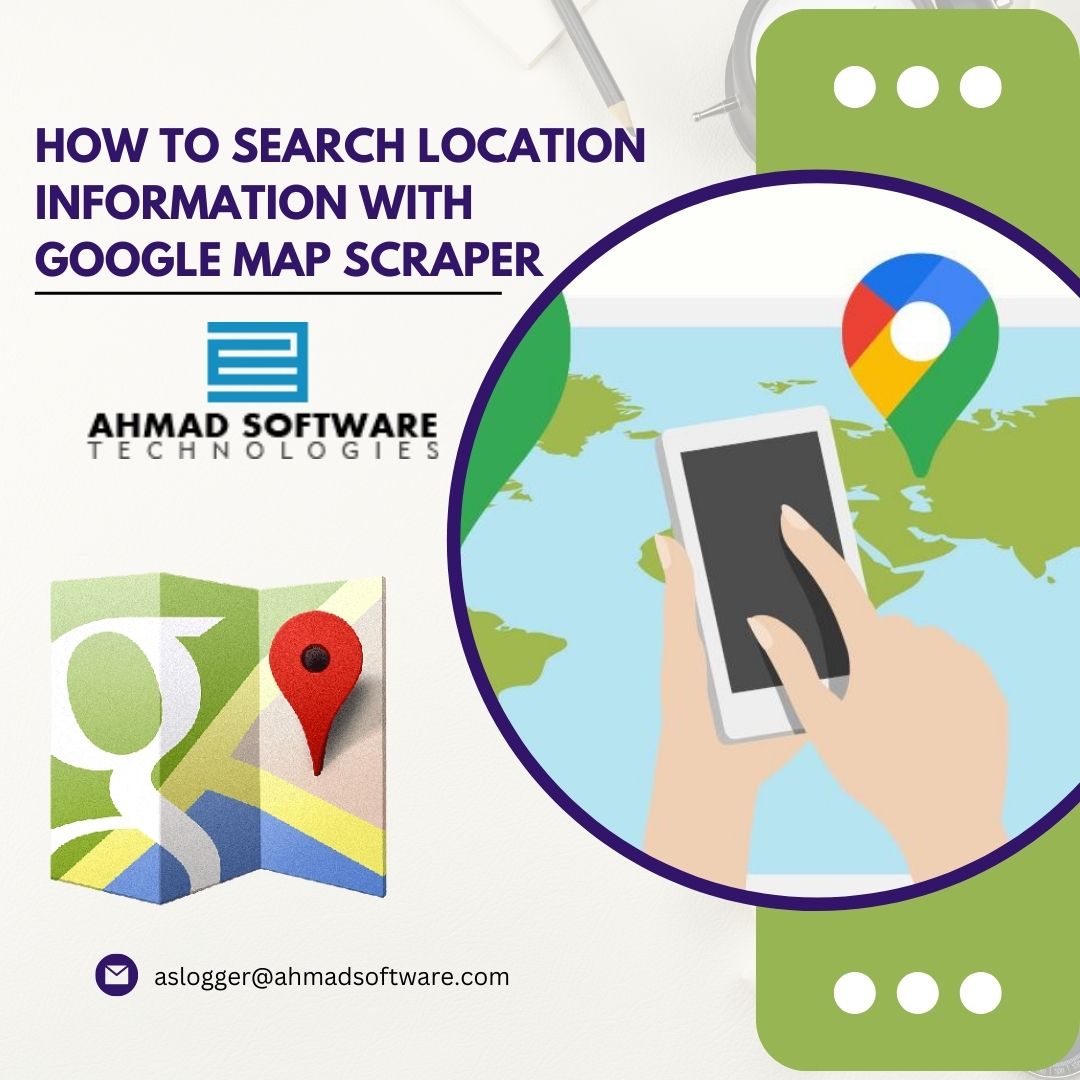How To Search Location Information With Google Map Scraper
By Ahmad Software
•
August 1, 2023
A Quick Look At Google Maps Extractor
Data has become a driving force behind decision-making, research, and innovation in the information era. Google Maps is a popular platform that gives a lot of essential information in the field of location-based data. A Google Map Scraper might be your ultimate tool for quickly tapping into this massive resource and extracting location-based data. In this post, we'll look at how to use a Google Map Scraper to search for information and harness the power of location data.What Exactly Is A Google Map Scraper?
A Google Map Location Scraper is a software program or script that extracts data from Google Maps automatically. This information may contain information about companies, places, landmarks, areas of interest, addresses, reviews, contact information, and other items. The scraper navigates the Google Maps platform, emulating human searches, and obtains the needed data, saves it in a structured manner for subsequent analysis or usage.
Understanding The Purpose
Before diving into the world of Google Map Scraping, you need to have a clear understanding of what information you want to search for. Define your objectives and identify the specific data points you need to extract. Whether it's competitor research, lead generation, market analysis, or any other purpose, knowing your goals will guide your scraping process.Input Your Search Queries
With the scraper ready, input the search queries relevant to your objectives. For example, if you're looking for all restaurants in a specific city, provide the appropriate search term and filters to narrow down the results. The scraper will then navigate through Google Maps and retrieve the relevant information.
Extracting Data
The Google Map Data Scraper will now begin its automated search. It will access the search results, extract the specified data points, and organize them in a structured format such as CSV, Excel, or a database. Common data points include the name of the business, address, contact details, website URL, ratings, and reviews.
Analyzing And Utilizing The Data
Once the scraper has completed its search, you'll have a rich dataset at your disposal. The next step involves analyzing the data to gain valuable insights. Depending on your objectives, you can use this information for competitive analysis, marketing campaigns, lead generation, location-based research, or any other relevant purpose.
Respecting Ethical Guidelines
While web scraping can be a powerful tool, it's crucial to remember the ethical considerations associated with data scraping. Always respect the Terms of Service of Google Maps and any other platform you scrape. Avoid overloading servers with excessive requests and ensure you're using the data responsibly and in compliance with data privacy regulations.
Handling Pagination And Complex Searches
Google Maps often displays search results in multiple pages or uses infinite scrolling to load more results as the user scrolls down. Handling pagination is essential to ensure that your Google Map Scraper fetches data from all relevant pages. Implementing the right logic to navigate through multiple pages or scroll through results seamlessly is crucial for comprehensive data extraction.
Conclusion
A Google Map Crawler is a powerful tool that allows you to extract useful location-based data from Google Maps' large reservoir of information. Understanding your goals, using the correct technology, and following ethical norms may help you harness the potential of location data for multiple reasons, allowing you to make educated decisions and achieve a competitive advantage in your sector. Use a Google Map Scraper to explore into the realm of location-based insights.How to use the software




